Blog,South Colchester
10/06/2024
Here at Little Learners, we have paint as part of our provision EVERY week – but what are the positives of paint and why should little hands explore it?
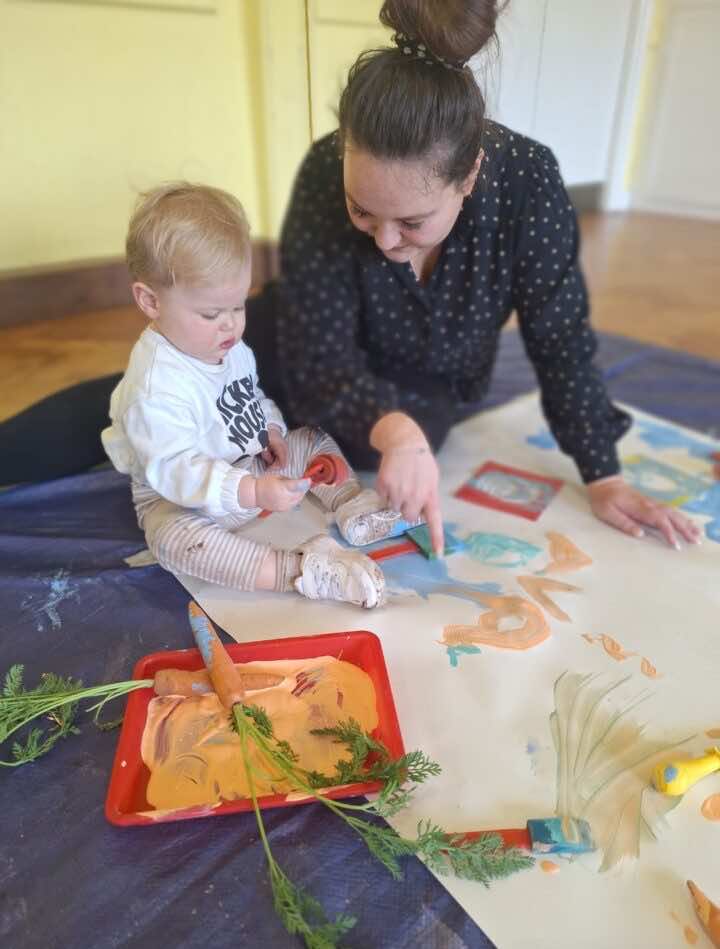
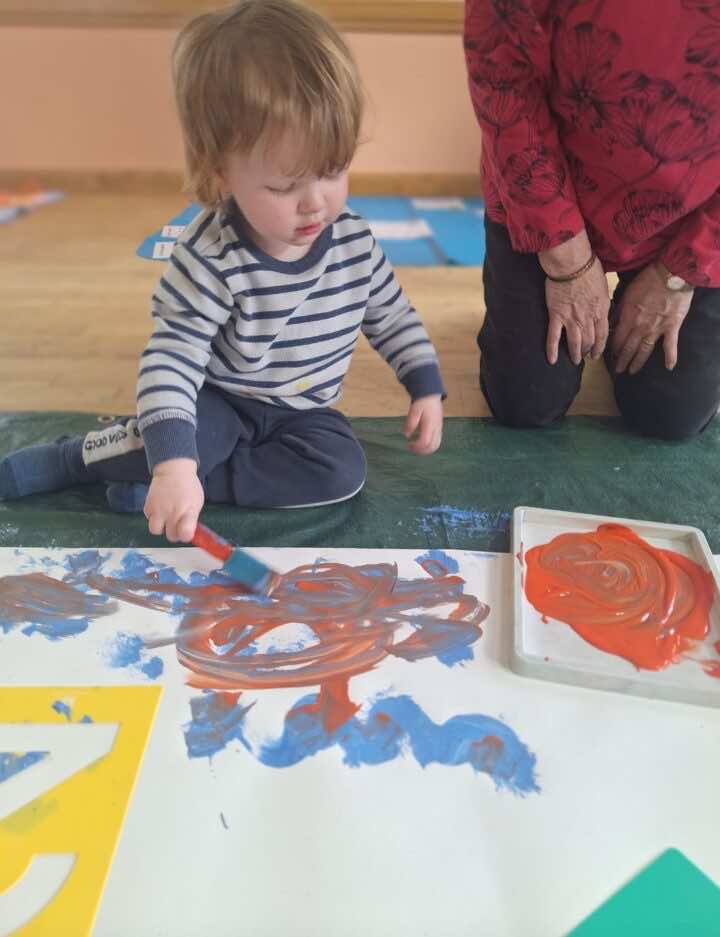
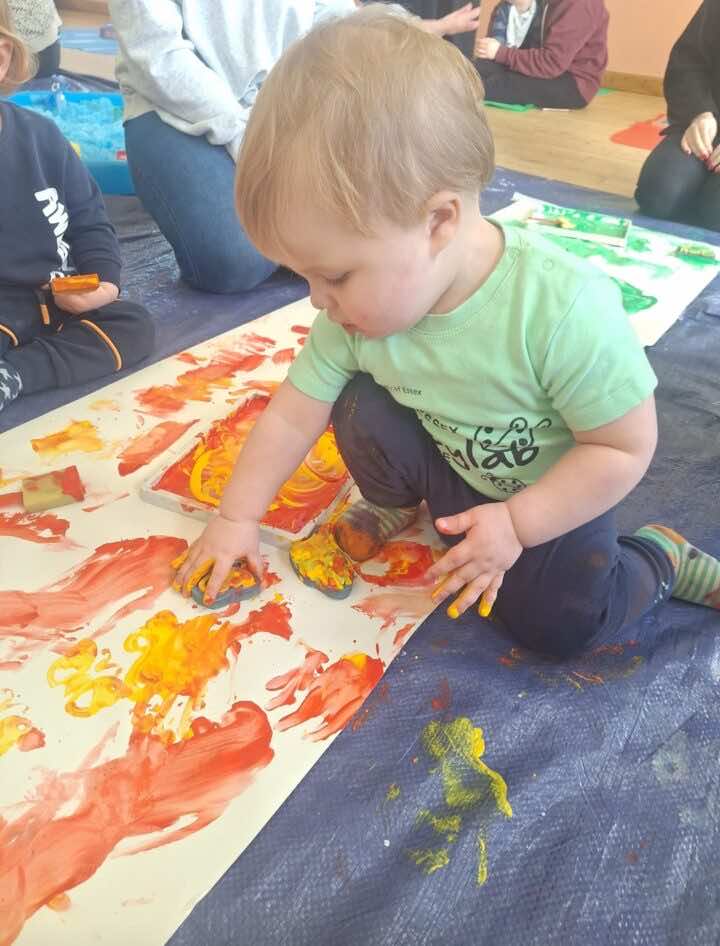
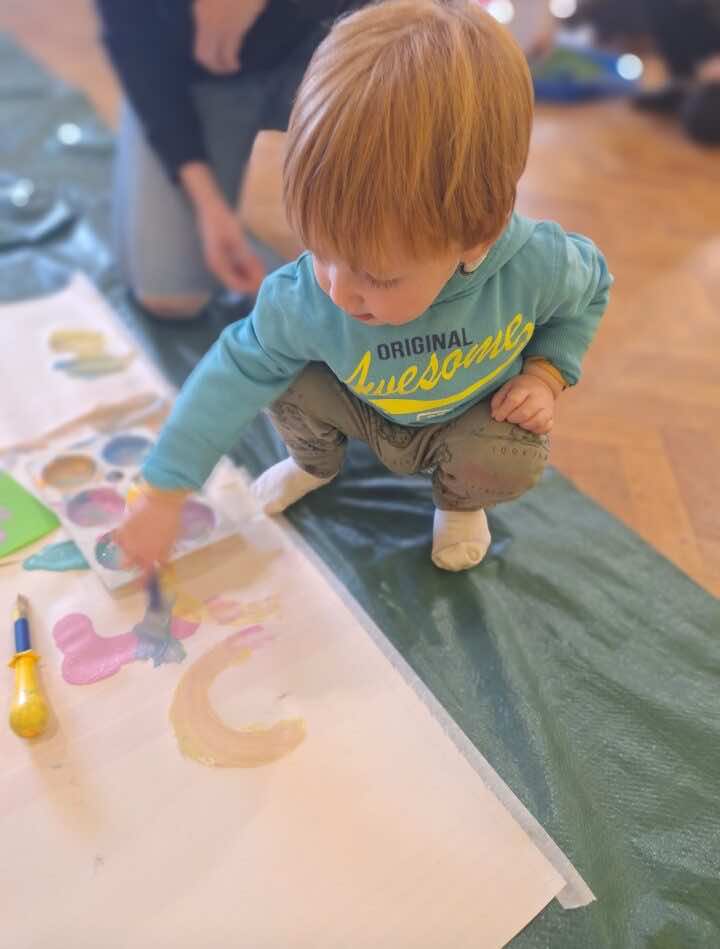
Paint is brilliant for developing fine motor skills – every action of moving their hand towards a surface enhances hand-eye co-ordination and spatial awareness. It also increases their hand strength (gripping tools), which is crucial for writing development later on.
It encourages creativity and curiosity – what happens when these two colours mix? What happens if I move my brush fast? What happens when I use a sponge and add water?
You may have heard about the importance of learning about cause and effect – painting is a brilliant (and very visual) way of exploring this.
It’s fun! It’s a brilliant sensory experience – the feel of slippery, wet paint is ideal for little learners.

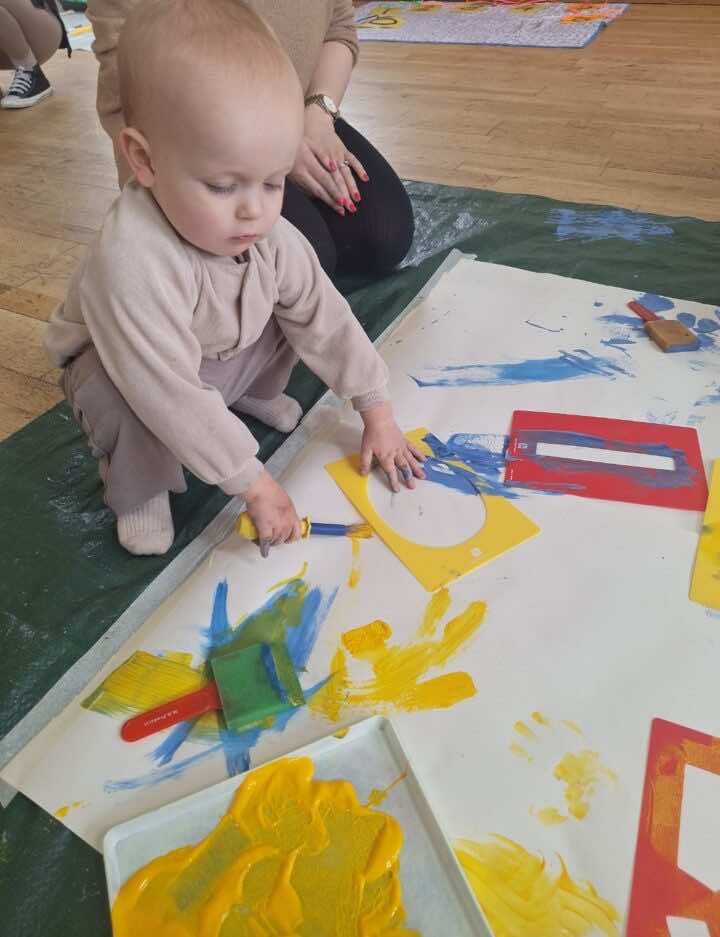
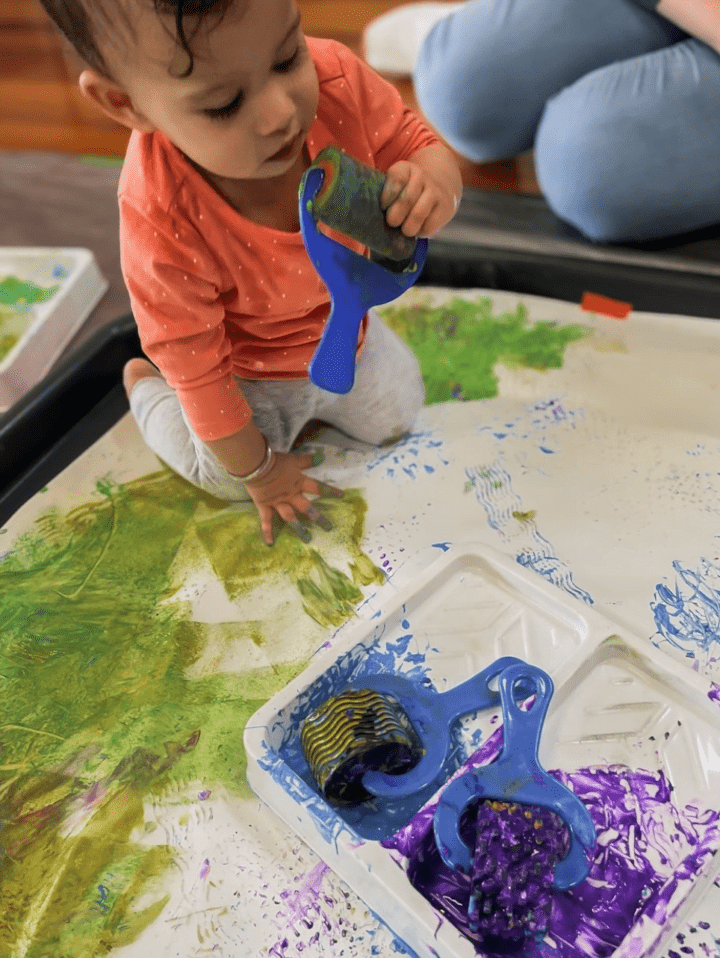
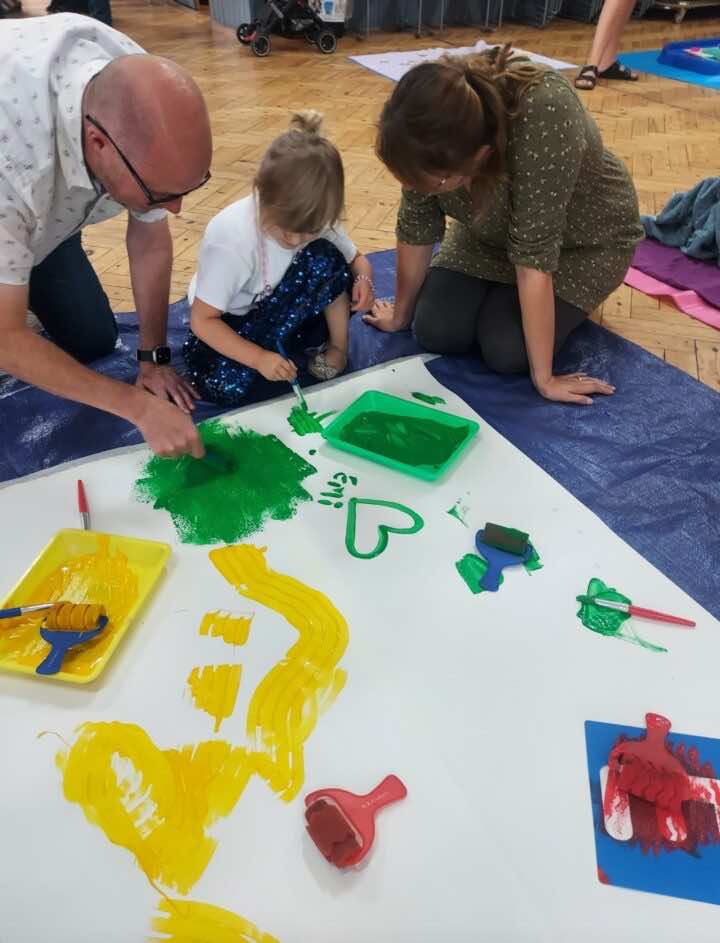
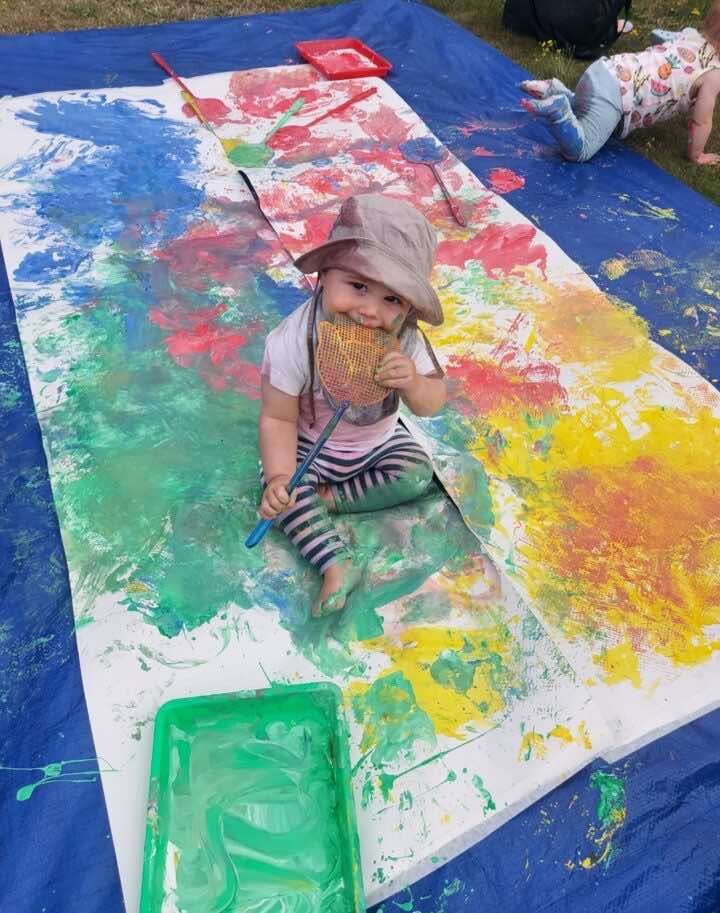
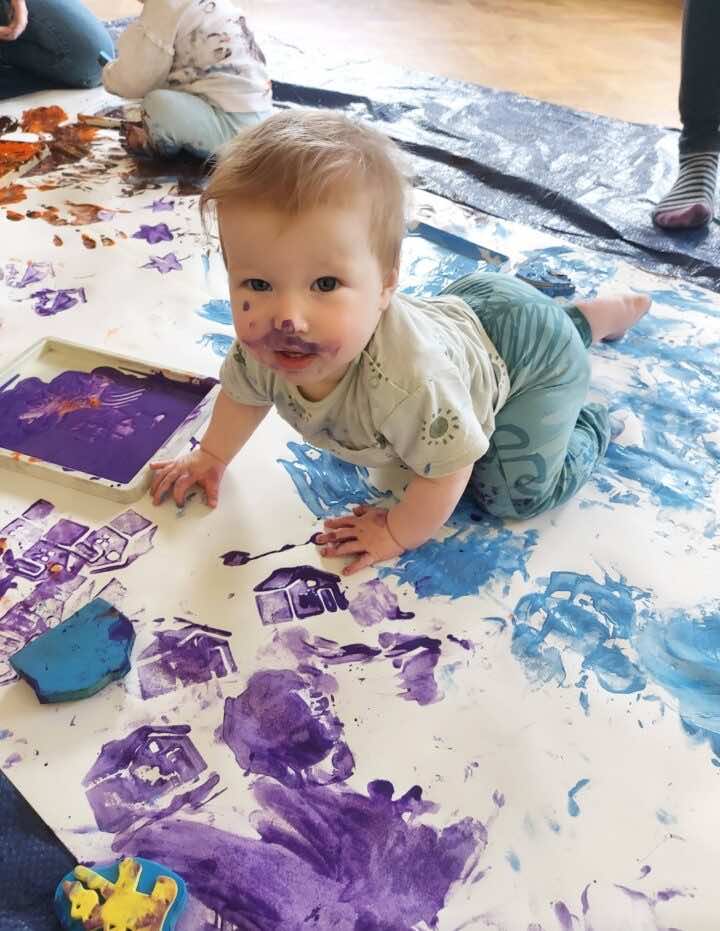
So how can you explore this at home?
You don’t needed masses of equipment for painting to be a stimulating experience – an old roll of wallpaper in the garden is an ideal setup. Pour out some paint and add some tools – this could be brushes, potato mashers, carrots, fly swats, toy cars – anything! There are lots of different natural resources you can print or paint with too – shells, sticks and leaves all create different patterns to look at. If you are lucky enough to have a tuff tray at home, pour the paint straight onto the tray. Part of the fun can be hosing it off the next day – or really developing those muscles by providing your little one with a scrubbing brush to help!
Try thick oozy paint one week and really water it down the next! Paintsticks are a great option for a more controlled first experience of paint – they roll up like glue sticks but produce some lovely mark making experiences. (Or check out egg chalks if you need something a little messy to start with!)
You can even change the material your little one paints on – try cardboard boxes, bubble wrap and silver foil.
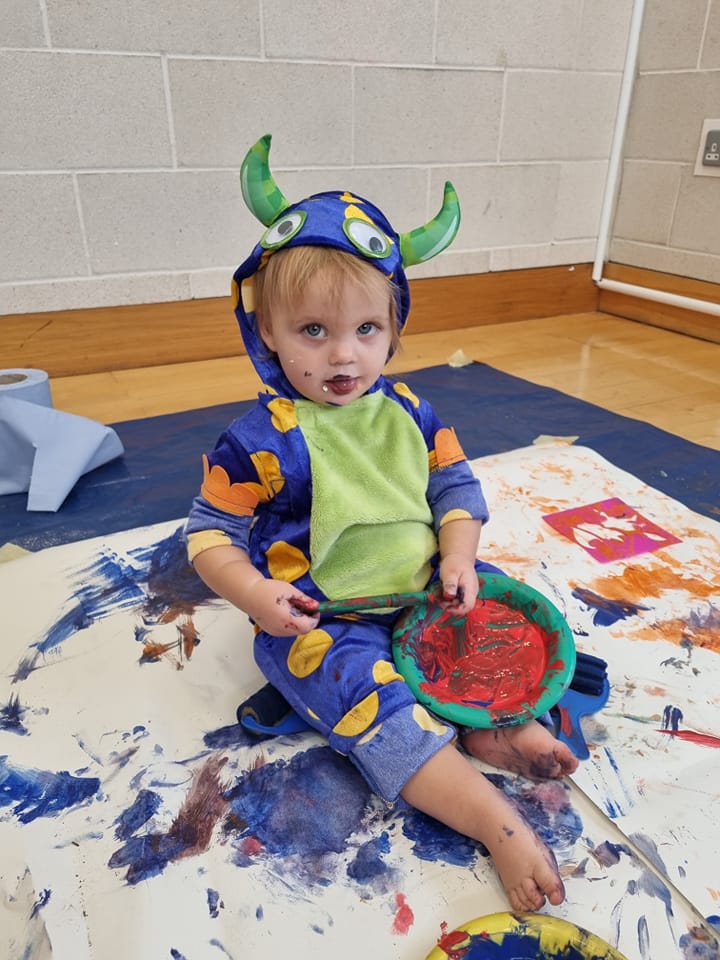
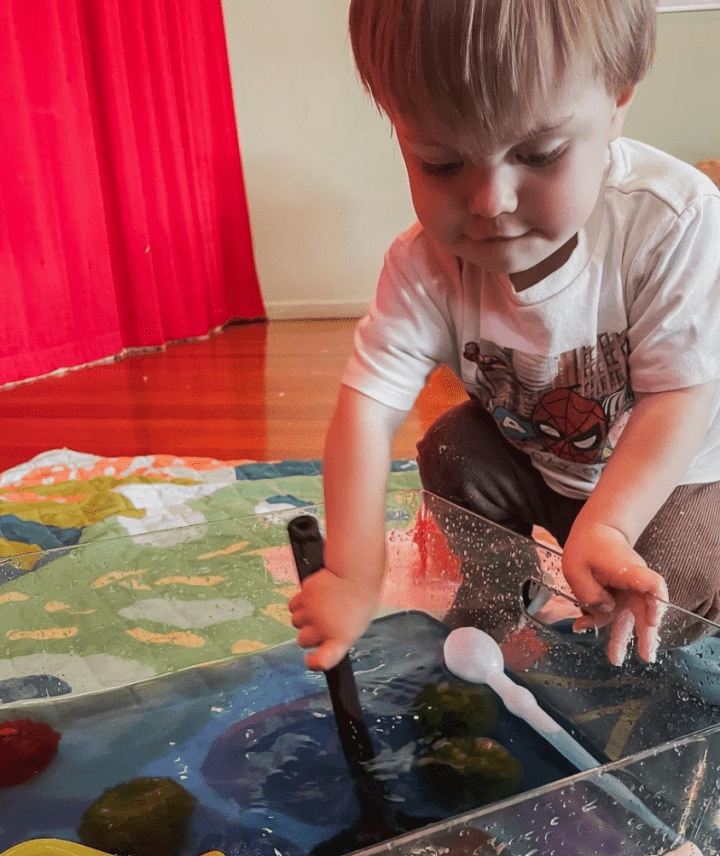
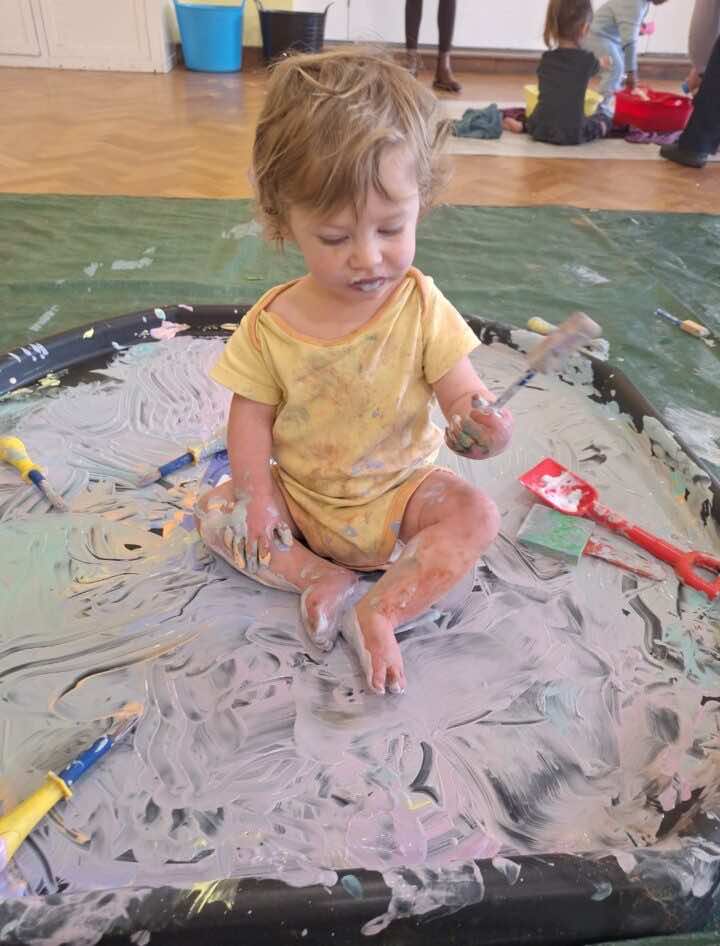
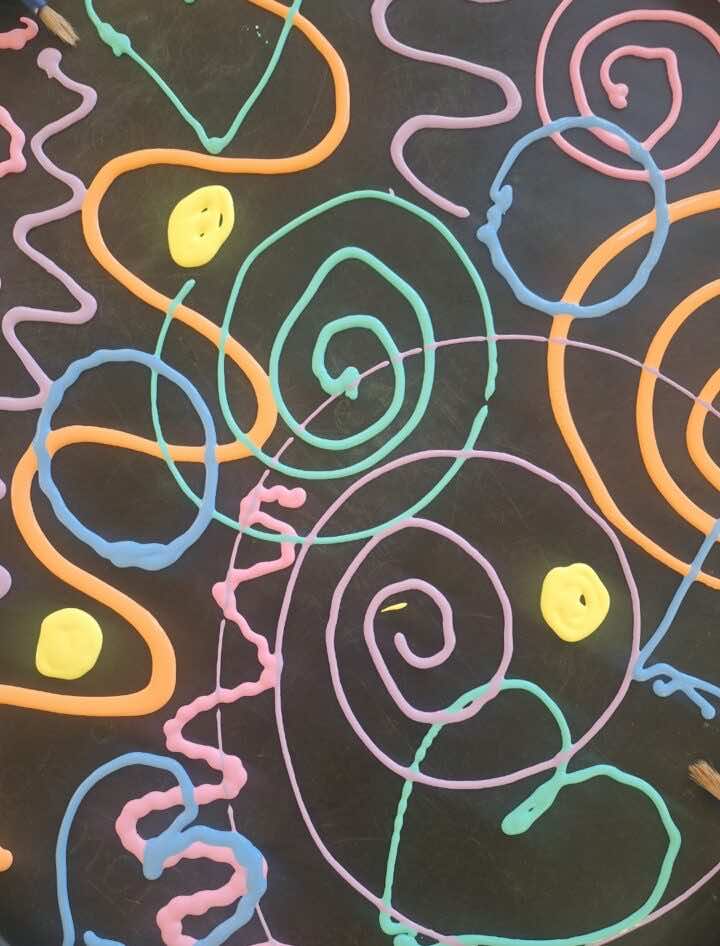
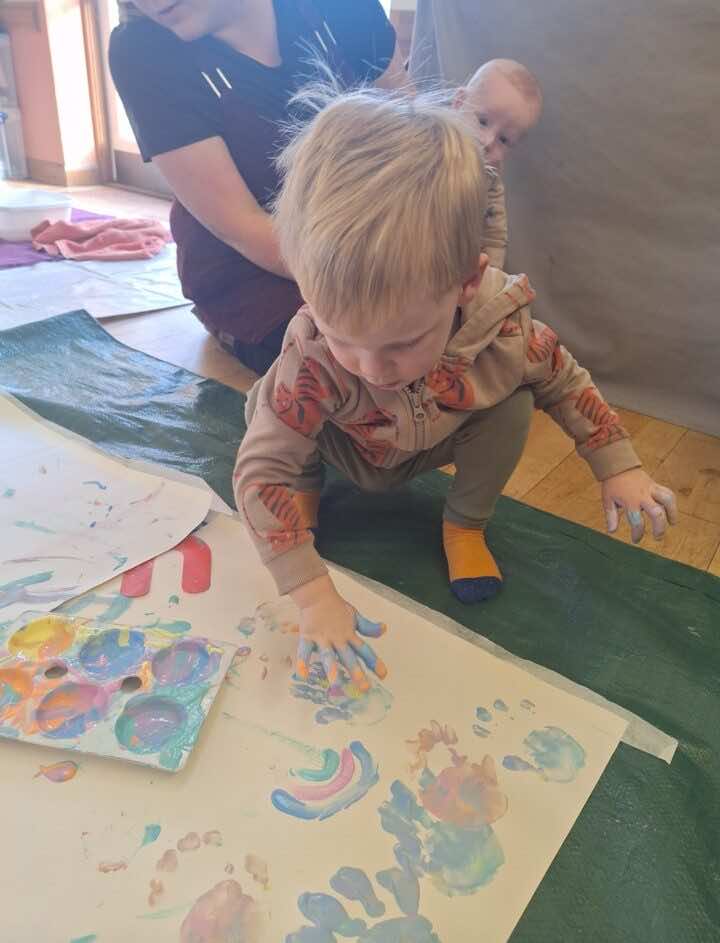
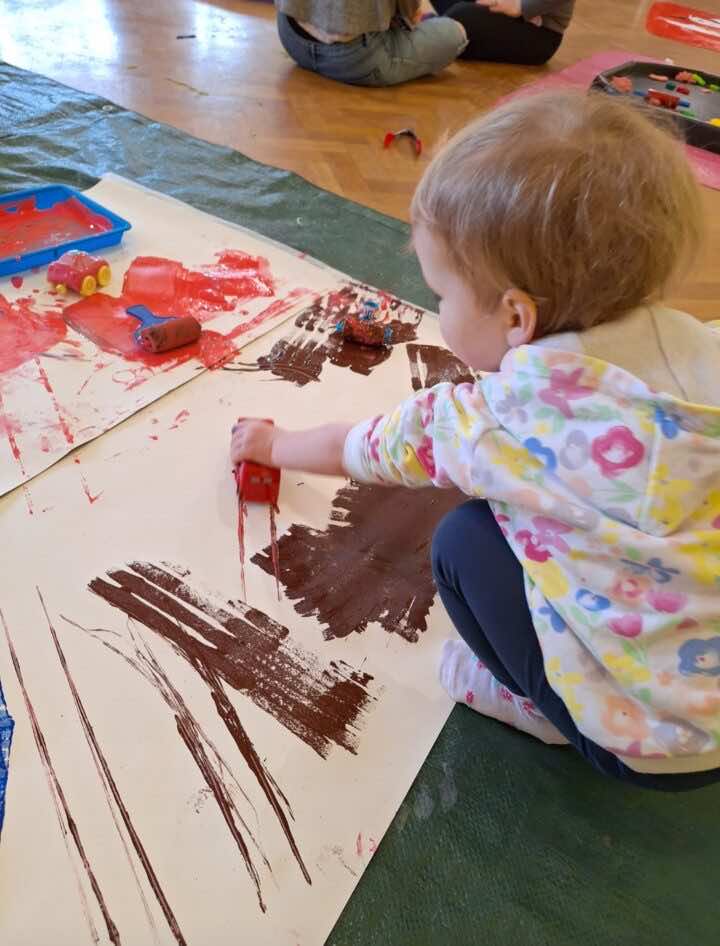
Pop some music on and get involved…..release your inner Van Gogh!
Alternatively, why not book into your local Little Learners session where you are guaranteed to have a painting experience for you and your little one to explore. Look here for your nearest session.
Happy painting!
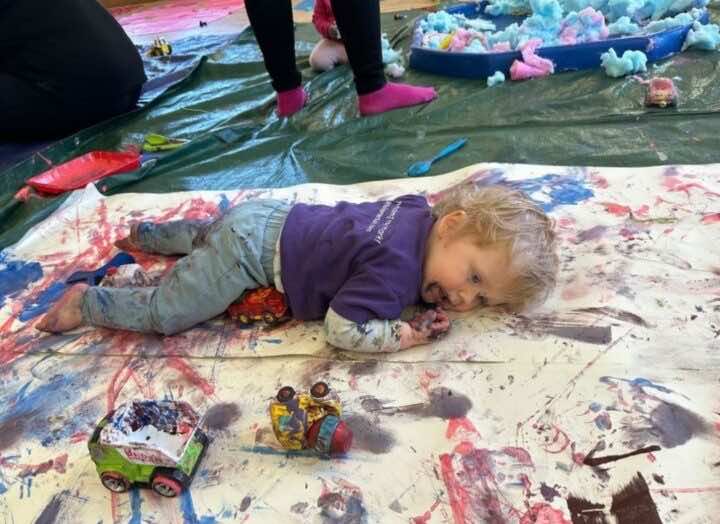
Anita
Little Learners South Colchester




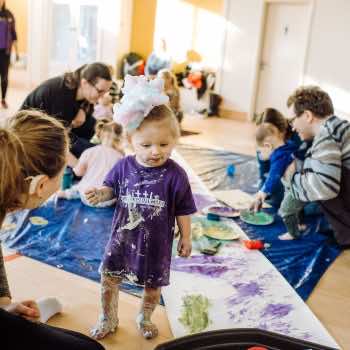
















[…] mark making and messy play classes encourage development through all types of activities such as paint, play dough and threading activities! But did you know that soft play has a part to play […]